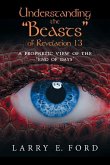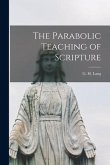The Antichrist (German: Der Antichrist) is a book by the philosopher Friedrich Christianity, as a religion of peace, is despised by Nietzsche. According to Nietzsche's account, pity has a depressive effect, loss of vitality and strength, and is harmful to life. It also preserves that which should naturally be destroyed. For a noble morality, pity is a weakness, but for Christianity, it is a virtue. In Schopenhauer's philosophy, which Nietzsche sees as the most nihilistic and opposed to life, pity is the highest virtue of all. But, for Nietzsche, pity "... multiplies misery and conserves all t, originally published in 1895. Although it was written in 1888, its controversial content made Franz Overbeck and Heinrich Köselitz delay its publication, along with Ecce Homo. The German title can be translated into English as either The Anti-Christ or The Anti-Christian, depending on how the German word Christ is translated. Christianity, as a religion of peace, is despised by Nietzsche. According to Nietzsche's account, pity has a depressive effect, loss of vitality and strength, and is harmful to life. It also preserves that which should naturally be destroyed. For a noble morality, pity is a weakness, but for Christianity, it is a virtue. In Schopenhauer's philosophy, which Nietzsche sees as the most nihilistic and opposed to life, pity is the highest virtue of all. But, for Nietzsche, pity "... multiplies misery and conserves all that is miserable, and is thus a prime instrument of the advancement of decadence: pity persuades men to nothingness! Of course, one does not say 'nothingness.' One says 'the Beyond' or 'God' or ' true life' or 'Nirvana,' 'salvation,' 'redemption,' 'blessedness.' ... Schopenhauer was hostile to life: therefore pity became a virtue for him."The moderns Leo Tolstoy and Richard Wagner adopted Schopenhauer's viewpoint. Aristotle, who lived in 384-322 BCE, on the other hand, recognized the unhealthiness of pity and prescribed tragedy as a purgative.








